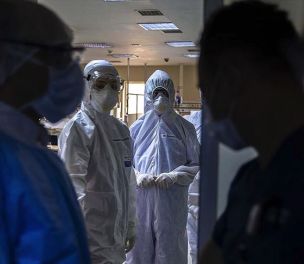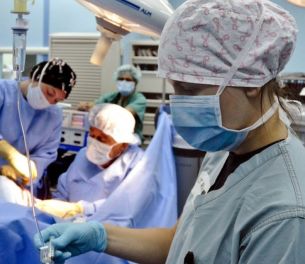* Photo: Servet Taşdemir / AA
Click to read the article in Turkish
On April 26, 1986, a terrible nuclear accident took place in Chernobyl Nuclear Power Plant near the city of Pripyat in the then Soviet Republic of Ukraine, a constituent of the USSR. "Chernobyl", a five-part series on the disaster that we could call neat and compact, came out a year ago, in 2019.
The codes of a disaster movie are generally clear: Uncontrollable forces turning into an existential threat to humanity, authorities ignoring or hiding it, the ensuing desperation as the threat has now turned into a disaster and its elimination by individual heroes, etc.
Several criticisms, negative and positive, were made about this series on Chernobyl disaster. They were all political. It is not our subject here. But, what makes this series different than the disaster cinema is its highly objective approach that focuses on a collective struggle, rather than fantastic figures like individual heroisms.
In efforts to prevent the Chernobyl disaster from reaching more grave dimensions, there were two occupational groups who worked at the center of the nuclear disaster, risking their lives: Firefighters and miners. The essential meaning that is left for me from this series is the struggle of these two occupational groups for life at the expense of their own deaths.
History is not only about the wars or the heroisms of such and such generals and kings. The history books at schools are full of these. A history limited to these is not only distorted and missing, but it is also false to a great extent.
It might be much of a cliche, but I still have to repeat it: "The masses make history, the rulers write it." They tell us about a commander leading a war at great length. But, what about tens of thousands of people who died in that war? The masses are nothing but numbers in the history books of the rulers! And, what are the real reasons of these wars, anyway?
If we will talk about the history of Chernobyl incident, then miners and fire fighters are the heroes of that disaster to be remembered with respect!
We are now faced with a greater, more comprehensive global-scale disaster, coupled with uncertainty and its ensuing concerns. The disaster is called Covid-19. It is possible to call it the disaster of the century for now, because we do not know what can happen in the following 80 years.
Covid-19 keeps affecting the whole world with an ever increasing graphic.
In the face of this quickly spreading deadly outbreak, both the ones who work in the processes of test and diagnosis and the ones who make efforts to find a vaccine against the virus are the heroes of this era.
Covid-19 outbreak is an historical incident. No matter how historians will write this incident in the future, these health workers already deserve to be remembered with respect. This part is directed towards the future and it is the job of historians.
We are at the present. And we have great responsibilities towards health workers today. The governments of countries must, above all else, create safe environments for health workers and must provide them with equipments that will keep them safe from the virus threat. To health workers who fulfil the responsibility of their professions by risking their lives, the state must fulfil its responsibility to full extent.
We, as individuals, must support the struggle of health workers against Covid-19 threat. We see that some people tested risky resist the precautions of health personnel. They avoid being tested and this behavior of theirs is recorded by cameras. The panic of these people can be understood to a certain extent. But the risky persons definitely do not have the right to transmit the virus to the ones around them! We must be careful not to spread the disease to others just as much as we try to protect ourselves. The starting point of public health against the outbreak is us as single individuals.
I remember all health workers around the world who struggle against the virus by taking great risks and risking their lives with respect.
We have health workers in our country infected with the virus. There are even losses of life. I remember all health professionals and other workers who lost their lives while struggling against the virus, especially Internist Professor Cemil Taşçıoğlu from İstanbul Çapa Faculty of Medicine, with respect, I express my condolences to their relatives.
According to the statement made by Health Minister Fahrettin Koca yesterday, the number of health personnel infected with the virus in Turkey is 601. I hope that they will recover as soon as possible.
Chernobyl, Covid-19 outbreak, history... risking death to keep alive; is there a more honorable and moral stance than this?
Science will do it!
History will not only write health laborers. History will also write what states/governments did in the face of this disaster. It will also write which government fulfilled their responsibility to its society and to what extent, which one took a self-centered attitude, did not take necessary precautions and was far from meeting the basic needs of its people. Because our age is not limited to insufficient records kept by the states, as it was the case centuries ago, nor is it limited to myths more than records. There are now records kept by people and institutions within the bounds of technological means.
All of these, as historical documents, will constitute the archive of the good and evil. (HŞ/TP/SD)





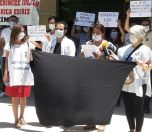
assa.jpg)
